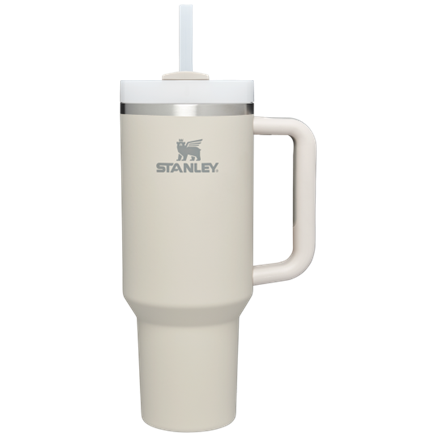2024 Stanley Cup Lawsuit Says Maker Failed to Disclose Viral Tumblers Contain Lead
Last Updated on July 2, 2024
Four consumers have filed a proposed class action lawsuit in which they allege the maker of the popular Stanley-brand cups intentionally failed to disclose until late January 2024 that the viral products contained lead.
Want to stay in the loop on class actions that matter to you? Sign up for ClassAction.org’s free weekly newsletter here.

The 25-page Stanley lead lawsuit says that although defendant Pacific Market International (PMI) touted the products for years as safe, the company failed to disclose to the public that its manufacturing process for the drinking tumblers, whose popularity exploded with the help of social media influencers and branded partnerships, included lead.
Instead, PMI falsely advertised its Stanley cups as “BPA-free” and made of stainless steel, while failing to warn that lead is a “key ingredient” in the cups’ vacuum seal, which, if damaged, could expose a user—or their child—to lead, the proposed class action lawsuit claims, stressing that PMI’s target demographic for Stanley cups is “young professional women of childbearing age.”
The false advertising complaint, filed in Los Angeles County Superior Court on February 1, emphasizes that lead is dangerous in even trace amounts, and that exposure, particularly through touching, swallowing or inhalation, can cause severe developmental problems in children.
The Stanley lead lawsuit accuses Seattle-based PMI of knowingly misleading the public by failing to disclose “a fact that reasonable consumers … would want to know before buying a drinking cup,” especially since a bevy of similar products do not use lead or pose any lead-related risks.
“PMI had a duty to disclose its use of lead before enticing millions of customers to unwittingly buy its drinkware,” the lawsuit scathes. “Instead of allowing consumers to decide for themselves and their families whether to accept any risks associated with using a lead-contaminated drinking cup, PMI kept customers in the dark so as not to interfere with its bonanza of influencer-driven sales, especially sales to young women.”
The plaintiffs ask the court for a permanent injunction requiring PMI to disclose “any lead or other toxins in its products in California,” refunds for proposed class members for what they paid for lead-contaminated Stanley cups, and punitive damages for PMI’s “deliberate concealment of its use of lead and of the possibility that damage to a cup could expose consumers to lead.”
So far in 2024, Stanley has not recalled its popular tumblers.
Stanley cups: a viral marketing phenomenon

In 2019, PMI launched a new marketing initiative to increase sales of its Adventure Quencher Travel Tumbler, the suit begins. Ultimately, sales of the product skyrocketed as social media influencers were able to tap into PMI’s core demographic of young women, the filing says.
The case relays that with the popularity of the Adventure Quencher tumbler came the launch and viral explosion of other Stanley-brand cups “designed with similar sleek aesthetics and utilizing the same insulation system.”
“The Stanley brand went from $70 million in annual sales in previous years to over $750 million in 2023,” the lawsuit notes, adding that Stanley cups became “the model of choice among a lot of millennial and Gen Z women, many of whom are mothers.”
However, in January of this year, a number of viral social media posts revealed that Stanley cups contain lead, the complaint continues. Upon this news, the suit says, PMI admitted on its website that the reports were true.
PMI admitted Stanley cups contain lead, lawsuit says
According to the filing, PMI admitted in January 2024 that its Stanley cups contain lead. Per the case, PMI’s website relays that the company employs in its manufacturing process an “industry standard pellet to seal the vacuum insulation at the base” of the Stanley cups. This sealing material “includes some lead,” PMI states, claiming that, once sealed, this vacuum insulation area is covered with “a durable stainless steel layer, making it inaccessible to consumers.”
Importantly, the lawsuit contends that PMI professed awareness in its explanation that the Stanley cups—and their lead-containing vacuum seal—could become damaged through ordinary use of the product, in particular by highlighting that the tumbler is eligible for the company’s lifetime warranty “[i]n the rare occurrence the base cap of the product comes off … and exposes this seal.”
According to the lawsuit, several experts have opined that the lead content in Stanely cups is concerning, with one researcher stating plainly that, “[i]f that bottom seal comes off, all bets are off … Lead is so toxic that you just can’t take chances with it.”
Per the suit, other researchers have noted that a broken vacuum seal in a Stanley cup “may not always be obvious,” and that a child who handles a broken tumbler faces “a very possible and likely transference of microparticulate lead via normal hand-to-mouth behavior in young children.”
The case says that PMI, by “selectively disclosing” the materials it used to produce the Stanely cups, misled consumers into believing the company had fully disclosed all materials the product contained. Particularly concerning, the lawsuit goes on, is that PMI has advertised the Stanley cups as ideal for “outdoor adventures” while knowing that the lead-containing vacuum seal could become exposed if, say, the products were damaged in a fall during hiking, running or similar activities.
Had the company disclosed that the tumblers were “made of stainless steel and lead, profits would undoubtedly have suffered,” the suit argues.
“Consumers had a right to make an informed decision between a Stanley cup or a lead-free alternative – not to be misled into believe that Stanley cups were free of harmful chemicals,” the case reads.
Who’s covered by the Stanley cup lawsuit?
The proposed Stanley cup class action looks to represent all consumers who bought a Stanley cup in California before PMI admitted, on or around January 24, 2024, that the product contained lead.
Importantly, although the case detailed on this page aims to represent only California consumers, that does not necessarily mean Stanley cup users in other states have no options.
If you don’t live in California and you’re interested in taking action, you may want to contact a class action attorney in your area. Many offer free initial consultations and would be best equipped to help you understand your legal rights and options, including whether it may be feasible to file a new class action lawsuit.
How do I join the Stanley cup class action lawsuit?
Typically, there is nothing you need to do to join, sign up for, or add your name to a proposed class action lawsuit when it is initially filed. It’s usually only in the event of a class action lawsuit settlement that the people covered by the suit, called “class members,” would have to act. This tends to involve filling out and filing a claim form online or by mail.
Get class action lawsuit news sent to your inbox – sign up for ClassAction.org’s free weekly newsletter here.
Video Game Addiction Lawsuits
If your child suffers from video game addiction — including Fortnite addiction or Roblox addiction — you may be able to take legal action. Gamers 18 to 22 may also qualify.
Learn more:Video Game Addiction Lawsuit
Depo-Provera Lawsuits
Anyone who received Depo-Provera or Depo-Provera SubQ injections and has been diagnosed with meningioma, a type of brain tumor, may be able to take legal action.
Read more: Depo-Provera Lawsuit
How Do I Join a Class Action Lawsuit?
Did you know there's usually nothing you need to do to join, sign up for, or add your name to new class action lawsuits when they're initially filed?
Read more here: How Do I Join a Class Action Lawsuit?
Stay Current
Sign Up For
Our Newsletter
New cases and investigations, settlement deadlines, and news straight to your inbox.
Before commenting, please review our comment policy.